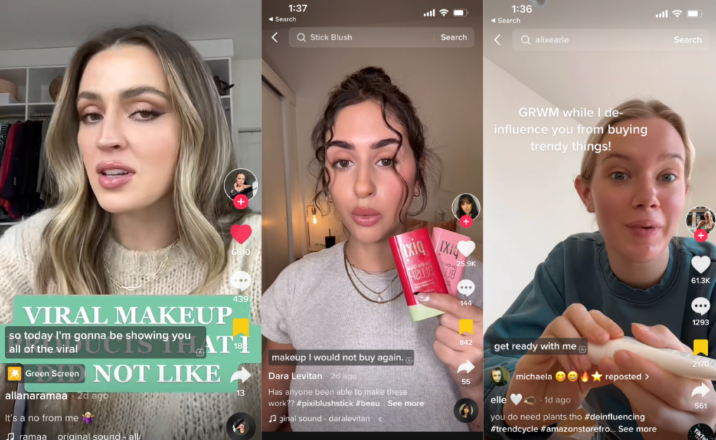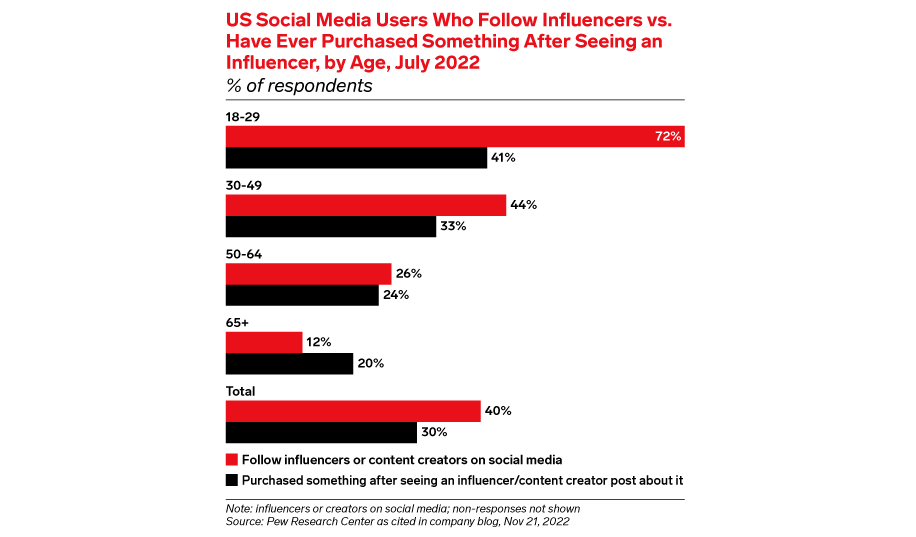
Key takeaways
- 64% of British consumers have lost trust in influencers motivated by commercial gain.
- On TikTok, #deinfluencing videos received 206.5 million views.
- Gen Z and millennial consumers prefer to follow social media influencers they perceive to be authentic and relatable.
Influencers have long been a powerful marketing force, but a new trend on TikTok is challenging their dominance. The trend is known as "deinfluencing," and as the name implies, TikTok creators encourage their followers not to buy certain products or support certain brands. You read that right. It is viewed as the polar opposite of traditional influencer marketing, in which creators are compensated to promote products and services.
No respect anymore
According to research from an influencer marketing platform, 64% of British consumers have lost trust in influencers motivated by commercial gain. Authenticity and credibility are becoming increasingly important in influencer marketing as consumers become more skeptical of traditional creators.
“Authenticity is one of the most over-used words within influencer marketing but it remains the most crucial,” said Alex Carapiet, the head of social at Seed.
“And the wider de-influencing phenomenon is a manifestation of an industry that has recently struggled with genuine authenticity as more and more people wish to become influencers, and more brands wish to utilise the influence they wield.”
With over 52 billion views on TikTok, the trend gained significant traction.
 TikTok creators are deinfluencing
TikTok creators are deinfluencingIt has been fueled by controversies involving certain influencers accused of promoting products they do not use or believe in. Influencer Mikayla Nogueira, for example, received backlash after posting a review of a mascara product that many viewers thought was dishonest.
By February 2023, TikTok had received 206.5 million views for #deinfluencing videos.
What deinfluencing means for marketers
Marketers face a challenge as they navigate the ever-changing landscape of influencer marketing due to the deinfluencing trend. Marketers should prioritize long-term relationships with influencers who share their brand values and help them connect with their target audience. To regain consumer trust, brands could prioritize transparency and ethical practices in their influencer marketing campaigns.
 41% of US Gen Z have previously made a purchase based on creator content
41% of US Gen Z have previously made a purchase based on creator contentAccording to Cassandra's research, Gen Z and millennial consumers prefer to follow social media influencers who they perceive to be authentic and relatable. A whopping 89% of young consumers thought it was important for influencers to come across as nice people, while 86% wanted to know that the influencers were not solely concerned with sales.
The deinfluencing trend emphasizes the importance of transparency and ethical practices in influencer marketing, and brands must now strive to establish genuine connections with influencers and their audiences while also aligning with their values.
Alternatives for mobile marketers
While social media is facing challenges, mobile marketers need to think about other channels of marketing. Appranking is a one-stop intelligent marketing platform that can provide a variety of solutions such as App Store Optimization, Search Ads, and Intelligent marketing decisions. Click HERE to learn more.
Empower your team with our App Marketing Intelligence
Free forever. Cancel anytime.


